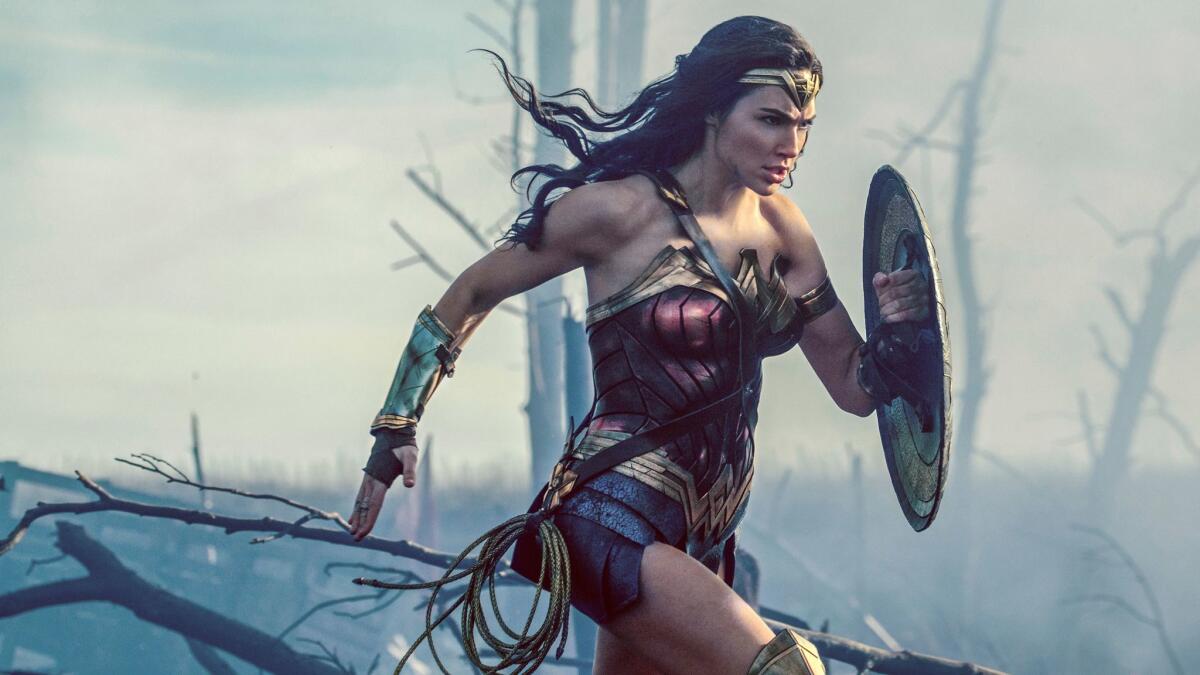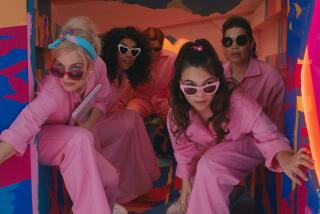Op-Ed: ‘Diversity’ is a euphemism. We should be careful how we use it

As Peter Capaldi departs “Doctor Who,” some hope his replacement will increase the show’s diversity. After “Wonder Woman” was released, some were disappointed that diverse Amazons didn’t receive more screen time. A recent study found that films with diverse casts do better than films with casts that are less diverse.
Whether critics are calling for more representation of women, people of color or other marginalized groups, “diversity” is a convenient term. It sounds positive and upbeat and inclusive. Diversity indicates more rather than less, additional options rather than fewer.
“Diversity” is also a euphemism. When critics from marginalized groups ask for more diversity, they are actually asking the media, employers, schools and society in general not to discriminate against them. When it takes until 2017 to get to a female-led superhero film from Marvel or DC, that’s not a failure of diversity; that’s sexism. When 12 Doctors have been cast since 1963 and they are all white men, that’s not a failure of diversity either; that’s racism (and sexism as well).
A request for more diversity isn’t really a plea to embrace stimulating heterogeneity. It’s a plea to embrace minimal decency.
You catch more flies with sugar, so I understand why criticisms are phrased as “add more diversity, Hollywood” rather than “stop being bigots, you dopes.” But although it has some tactical advantages, the term “diversity” has some downsides as well.
The liberal goal is not to promote difference for difference’s sake, but to end bigotry.
For one thing, although diversity ostensibly covers everyone, in practice it’s used to convey the presence of non-white, non-male, non-hetero or non-cis groups. The word therefore implies that what’s normal is white, male, hetero, cis. There are white guys, and there are diverse people, who are defined by their difference from the standard or norm.
Along the same lines, the term may suggest that racial or gender differences are true or foundational. As Karen Fields and Barbara J. Fields point out in “Racecraft,” racism “takes for granted the objective reality of race.” Racism says that black and white people are different in some fundamental way. Diversity celebrates that difference but also accepts it. Diversity, as used in media critiques, implies that the difference between a woman and a man is necessarily more important than the difference between two women. Diversity risks conveying that philosophically and biologically flimsy categories actually describe real differences.
The strategic use of diversity can also backfire. When critics questioned Marvel’s choice to cast Finn Jones rather than an Asian American actor in “Iron Fist,” Jones countered that the film included numerous actors of color and was “one of the most diverse shows I’ve ever worked on.” The trailer for “Black Panther” prompted some on social media to mutter that it lacked diversity because it mostly featured black actors. And in academia, conservatives have bemoaned the lack of a “diversity of ideas,” by which they mean that universities have not hired enough conservative thinkers.
Ideological diversity may or may not be a boon — no one would benefit from more Nazi intellectuals, for example. Either way, conservatives who make these arguments are trying to co-opt a moral point by glomming on to its form and ignoring its context.
When critics or fans demand more diversity, they don’t mean to suggest that all difference is good all of the time; they don’t want institutions to give equal time to racists and anti-racists, or to feminists and sexists. Similarly, casting some non-white-guy actors isn’t enough in itself; Hollywood narratives also have to avoid stereotypes and bigotry. “Iron Fist” cast some non-white actors, which was good — but it also told an Orientalist story about a white guy getting power from the mysterious East. “Gone With the Wind” cast Hattie McDaniel, but that didn’t turn a story about the virtues of racism into an uplifting paean to diversity.
Many activists find the language of diversity useful; the fact that the term has become so ubiquitous in the mainstream is a measure of how successful it’s been. But as the word becomes more popular, keep in mind that the liberal goal is not to promote difference for difference’s sake, but to end bigotry. The whiteness and maleness of Hollywood isn’t (just) wrong because it reduces the smorgasbord of possible perspectives. It’s wrong because discrimination is wrong. We don’t need diversity in the sense of variety. We need equality and justice.
Noah Berlatsky is the author, most recently, of “The Consequences of Feminism: Women Film Directors.”
Follow the Opinion section on Twitter @latimesopinion or Facebook
MORE FROM OPINION
It’s Betsy DeVos’ job to protect students from predatory for-profit colleges. She should do it
Why can’t the Trumps can’t get their stories straight?
In Europe, Trump almost sounded like an adult
More to Read
A cure for the common opinion
Get thought-provoking perspectives with our weekly newsletter.
You may occasionally receive promotional content from the Los Angeles Times.










